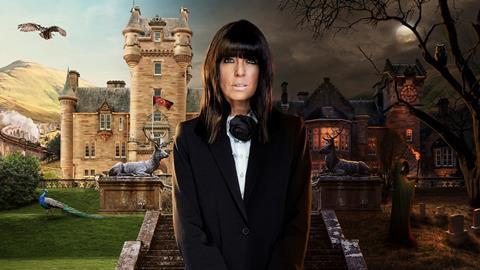Lies, deception and backstabbing… But don’t worry, the hit BBC series is just a game. Or is it?
In the dimly lit corner of a sumptuously decorated room, three people sit in a circle of chairs. The first has a question for the other two: he wants to know if they’ve been lying to him. There’s a brief silence, before both assure the speaker that they are not. After a short interlude, the second person repeats the same question to her companions. Again, the unified reply is that no one is lying. Finally, the third person asks exactly the same thing, and gets exactly the same answer. Everyone is clear that no one is lying…except at least one of them is doing exactly that – and they all know it.
This, in a simplistic nutshell, is a typical snapshot from the BBC’s smash-hit reality sleuth show, The Traitors, in which the reliability of every person involved is under constant suspicion. Unless you’ve been living under a rock for the last two years, you’ll know that it features a group of contestants, thrown together in a Scottish castle, trying to find the liars in their midst. Although its central concept is slight, it has become the truest example of that overstated TV phenomenon: the show that everyone is talking about.
So why is such a simple – and drawn out – game so popular…and what does that tell us about its legions of eager viewers?
Murder on the Traitors Express
Although the show’s format is fairly repetitive, the above caricature is a little unfair. The Traitors’ production team do all they can to sprinkle creativity and unexpected twists into a show that is essentially a very long-form version of the classic youth group game Mafia. Season Three, which came to an end in late January, opened with an Agatha Christie-style ride on a steam train that immediately whittled 25 contestants down to 22 before the game had even commenced. A cruel process of self-selection left three people, all of whom had hoped to win a share of the show’s potential £100k prize, standing in a railway siding as a sad-faced human monument to the show’s unreliable format. Then, once the remaining players arrived at the show’s castle location, further twists emerged as contestants revealed – in truth-telling interviews to camera – that they’d arrived with their own major secrets under wraps.
There was Charlotte, the London-born business director who inexplicably decided to adopt a Welsh accent because of its trustworthy reputation…before immediately discovering that one of the other contestants was actually Welsh. Leanne, the tall blonde with Barbie-doll looks, told everyone she was a nail technician when, in fact she was a super-fit former soldier. Then, most pertinently to readers of this magazine, there was Lisa, a Cornish Church of England priest who removed her dog collar before entering the game and decided – initially at least – to conceal her profession from the rest of the players.
After a round of introductions, the show’s host and figurehead, Claudia Winkleman, selected three contestants to act as ‘traitors’ – players who would attempt to remain undetected as they selected people to be ‘murdered’ and removed from the game. The other 19 would act as ‘the faithful’, tasked with weeding out the lying bad apples in their ranks. Thus began twelve episodes of deceit, double-crossing and implied death, as the participants attempted to reach the final show and collect a share of the sizeable prize.
A spiritual dimension
While the first series was an instant hit in 2023, it seems that this latest iteration has been the one to catapult The Traitors to the forefront of Britain’s cultural conversation. It’s the show’s window into bare-faced deceit, and the lengths some people will go to in lying to their friends, that has nearly 10 million viewers tuning in each night. These viewing figures are almost unprecedented in an age of diversified channels and streaming services, and the show has become a rare instance of appointment-to-view television, as fans scramble to avoid spoilers and stay up to date.
As well as its undercover priest, Rev Lisa Coupland, the show is littered with religious nods and references, many of them unsettling. The hooded antagonists, who meet to decide their nightly deeds in a gothic tower, take a ‘traitors oath’ at the start of the series in which they “commit to lie and deceive throughout the game”, a sort of reverse baptismal vow. Meanwhile various props evoke somewhat occult vibes; such as the Wicker Man-style headdresses worn in one of this series’ challenges. There seems to be an implicit acknowledgement that the kinds of behaviours undertaken in this game have a dark spiritual dimension to them.
To her credit, Rev Lisa generally flew the flag for the virtue of truth (although, small spoiler, it didn’t get her all that far). After leaving the show she told this magazine that she’d checked in with God throughout the process and drew strength from his guidance. Like Rev Richard Coles in last year’s I’m a Celebrity…Get Me Out of Here!, Lisa did a good job of reflecting the kindness and availability of priests. She managed to get through the game without telling too many lies, and she certainly wasn’t a proponent of two-faced betrayal.
However, it would be misleading to suggest that Christian faith played much of a part in the show; Lisa’s presence felt more like a recreation of Cluedo’s Reverend Green than an attempt to explore faith’s role in the discernment of unmasking liars. “Every self-respecting murder mystery needs a priest,” she memorably told the group when she finally revealed her profession.
The Traitors for preachers
Preachers! Keen to demonstrate your finger is on the cultural pulse? Here are five easy links from theTraitors castle to your next sermon…
- The show is the parable of the weeds (Matthew 13:24-30). Good and evil live side by side, and nature takes its course…until the day of judgement. This is the plot both of The Traitors and of Jesus’ most famous gardening parable.
- Ejected contestants are quick to forgive (Colossians 3:13). Despite losing their place in the game and being accused by their supposed friends, the faithful are generally quick to “forgive one another” (See Ephesians 4:32) rather than bear grudges. Contestants usually leave the show with a heartwarming (and somewhat surprising) pronouncement of “no hard feelings”. This is exactly the kind of behaviour that Paul urges us onto.
- The Traitors embody what God hates (Proverbs 6:16-19). King Solomon presents a list of seven characteristics despised by God, and a good traitor ticks off nearly every one, especially “a heart that devises wicked schemes” (v18).
- The Faithful lean on their own understanding…and lack wisdom (Proverbs 3:5; James 1:5). As they grope around in the dark attempting (and often haplessly failing) to spot the liars in their midst, the Faithful could really do with some supernatural discernment. Unfortunately, in most cases, they’re relying on their own frequently referenced “gut feeling”, often without much success. The Bible tells us where to look instead.
- Nothing is hidden that will remain hidden (Luke 8:17). The whole point of The Traitors is that in the end, every lie is laid bare. While the thrill of watching is in the slow reveal of these droplets of deceit, the final analysis leaves no one in any doubt of the great river of lies that has flowed through the castle. Jesus similarly tells his disciples that in the end, every secret will be brought out into the open – a salutary warning to anyone who would try to spin a web of deceit.
It’s not about the Truth
It would be an easy reading of The Traitors appeal and popularity to suggest that the show is all about the search for truth; that we’re compelled by the idea that the light might triumph over the darkness. Indeed, I can imagine that such a take has already been preached in the pulpits of the UK, and in the various other countries which have their own versions Traitors superfans can fill the long waits between series by enjoying episodes from the US, Canada, Australia and even Holland, from where the show originates.) Yet while the battle between good and evil is so often what drives our interest in stories on TV and beyond, it’s not the truth that intrigues us here; it’s the lies.
The really big moments inThe Traitors come when someone decides to sacrifice one of their fellow players in order to get ahead. These role-play crimes, which seemingly come without real consequence, are labelled as ‘murders’ and ‘betrayals’, and leave us gasping and screaming at our TV screens.
Perhaps the most memorable example came at the end of this series’ tenth episode, as the final loomed and one contestant made a sudden, extraordinary and well-planned move to win the whole game at the expense of the people she’d appeared to be closest to. This is – we’re frequently reminded – just a game, and the character was simply playing it well. They’re not really ‘murdering’ each other; the betrayals are just part of the plot and the consequences aren’t significant.
But as we allow ourselves to enjoy the depths someone will sink to in order to win, it is important to recognise a significant problem. The biggest lie at the heart of The Traitors is that this behaviour doesn’t really matter. It’s easy to forget, despite frequent references to the growing prize pot (built up during daily challenges), that this is a competition which all arcs towards a consequence that really does matter; a cash prize that could be life-changing.
In one poignant moment during the current series, the last eight players shared their hopes and dreams over dinner, detailing how they’d spend the prize if they won it. A single mother talked about putting her children through university; another discussed his desire to support the charity which had helped his disabled brother. These were genuine and noble dreams, rooted in the hope of a life-changing sum of money.
Shows like The Traitors– and Amazon Prime’s Beast Games– allow us to see these dreams and then use them to raise the stakes of our investment in the game. Yet these very real dreams belong to very real people, and their casual dismemberment in a shocking moment on TV is perhaps more dangerous than we imagine.
The victims of these acts of betrayal really are victims; because bad behaviour has consequences (that’s how sin works, right?). It’s telling that, as soon as players are ejected from the game and reveal their true identities, they disappear almost instantly; as if the show knows we can’t cope with the awkwardness of their disappointment.
The danger of The Traitors is that it allows viewers to enjoy the darkness a bit too much; so much that we forget to root for redemption. As such, it’s a strange inversion of the usual TV fare, which so often plays on our thirst for hope and goodness to win through. It’s a bit of fun, but it does have real consequences – both for the contestants who leave empty-handed, and for the 10 million viewers whom it teaches that lying and betrayal really can pay.
It’s a strange and important cultural narrative, and one that Christians need to think carefully about engaging with.






































No comments yet